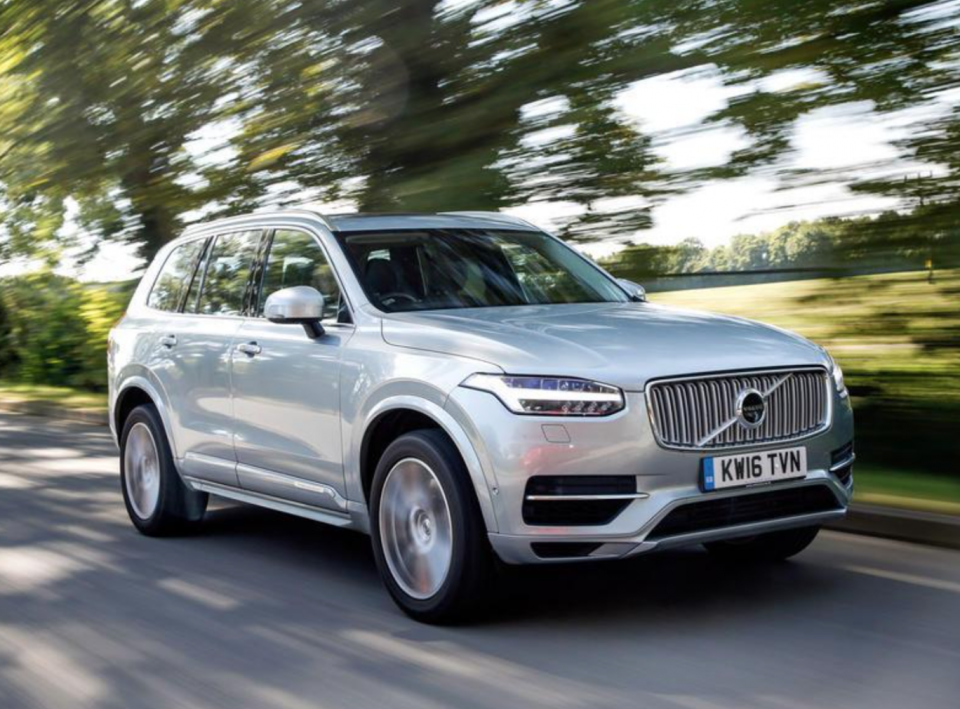Electric alternatives to your fossil-fuelled SUV

Far from being boring replacements to their petrol or diesel powered predecessors, EVs are often proving to be faster as well as quieter than the equivalent models in their categories.
Tesla’s Model X has shown they can be stylish and spacious too. Tesla’s first SUV also stands out as the only fully electric SUV currently on the market in the UK. With prices starting from £72,000, the Model X is firmly in the premium market for SUVs.
The California-based firm says the X is the “safest, fastest and most capable sport utility vehicle” ever made. It also comes with up to 611bhp and a 0-60mph speed of 3.2 seconds.

While some reviewers criticised the vehicle’s handling versus a few of the more conventional cars in this segment (Range Rover Sport, Porsche Cayenne), the spaciousness, and the use of advanced onboard technology that goes beyond the electric motors, means the X is a stand-out offering in this category.
Aside from Tesla’s efforts, there are several cars either on the market or coming to the market which promise the space, ride height and style that many people have become accustomed to, but without the tail pipe emissions.
VW showed off its electric credentials this month, unveiling the latest concept version of the ID Crozz Crossover at the Frankfurt Motor Show. VW say the car will have a range of 311 miles, 302 bhp and the capacity to charge to 80 per cent in 30 minutes via a 150kW DC fast charger. For their part, Mercedes unveiled an all-electric concept SUV at Frankfurt with a range of 310 miles, but this too is a concept car.
If it is a pure electric you’re after, it might be worth waiting for Jaguar’s I-PACE, which is expected to arrive in early 2018. This impressive car is expected to come with a 0-60mph speed of four seconds and a range of at least 300 miles.
Under the direction of Jaguar’s director of design, Ian Callum, the I-PACE has taken on the brand’s sophisticated but racey styling whilst making the most of the extra interior space available by having the power train under the body of the car.
The extra power needed to move around heavy SUVs means many conventional petrol-powered models are famously fuel-inefficient. While the pure electric SUV options are currently few and far between, the range of hybrid SUVs is expanding rapidly. Generally these cars employ a petrol engine with a battery pack and an electric motor and offer similar fuel efficiency to diesel engines. Some are plug-ins, with a battery that can be charged from the mains like a full EV, and others are “conventional” hybrids, with batteries that are charged using unused power from the petrol engine, as the Toyota Prius does.
In common with full electric cars, hybrids receive both the reduced car tax and government grants towards the initial purchase costs.

The original Volvo XC90 was a favourite of Jeremy Clarkson’s and now represents a serious offering in the premium SUV category and comes with hybrid options as well. The smaller XC60 also has a hybrid variant, while the XC40 launched this week is yet to be fitted with electric motors.
Also in the premium sector are hybrid variations of the BMW X5 (xDrive40e) and Audi Q7 (e-tron). Both offer a sportier driving experience as well as a more cabin comforts, the X5 and Q7 cost in excess of £55,000 and £65,000 respectively. Elsewhere, Porsche are producing a hybrid version of the Cayenne, Mercedes have their GlE 500e and Lexus the RX 450h.
Hybrid SUVs are already making a considerable impact on the UK motoring scene, with the Mitsubishi Outlander PHEV proving to be one of the most popular hybrids on the market. It was introduced as the world’s first plug-in hybrid SUV in 2013 and rapidly became a huge success in this country, partly due to the £5,000 government grant and low car tax. The PHEV 4h is priced at around £36,899, after the government grant.

With fuel consumption of just 166 miles per gallon, the Outlander is an economical plug-in hybrid with a good reputation for reliability.
If you’re after something a little smaller, the Kia Niro is an economical and relatively inexpensive addition to the growing range of hybrid crossover SUVs. Mini is perhaps a surprise addition to the plug-in SUV market. The Countryman SE has a 1.5 litre petrol engine and an 87bhp electric motor providing around 25 miles of pure EV driving. It handles well too and represents a distinctive offering in a competitive category of vehicle that includes the Audi A3 Etron and VW Golf GTE.
Should none of the above be of any interest, the popularity of SUVs means there will undoubtedly be more models coming to market over the next few years, and hopefully more than just two full-electrics for the committed EV motorist.

 Yahoo News
Yahoo News 